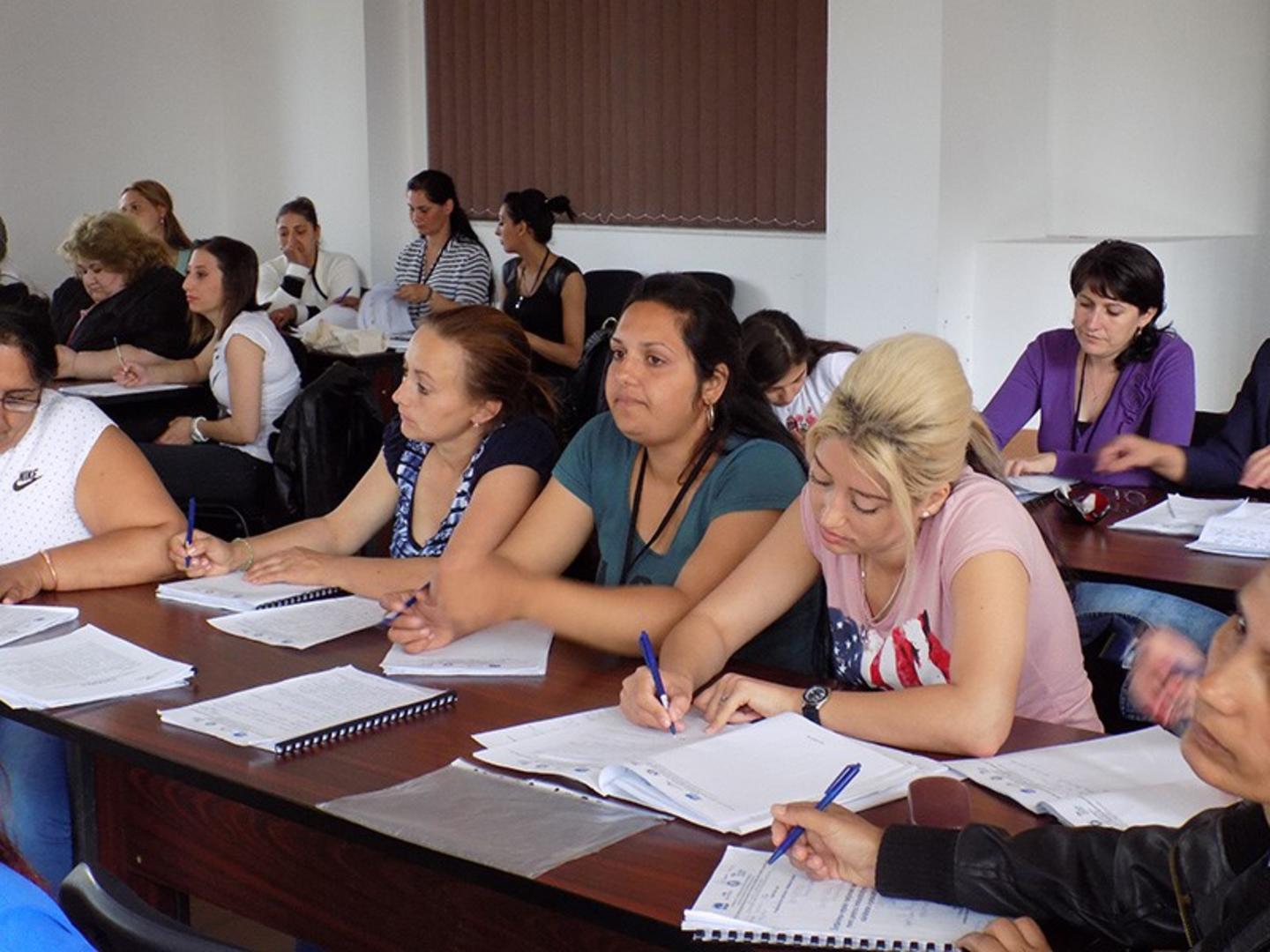EU studies show that the poor health of Roma is closely linked to social determinants of health. The Roma in Europe frequently experience social exclusion and discrimination and consequently face barriers accessing housing, employment, education and health care. Socio-economic, cultural and environmental conditions are widely recognised as a cause of health inequalities among the Roma, thus making it necessary to develop programmes empowering Roma and enhancing inclusiveness of basic services.
National Network of Roma Mediators
With over €1.3 million in support from Norway through the Romanian ‘Public Health Initiatives’ programme, Romanian authorities are working to improve the situation and tackle the challenges experienced by the Roma. Strengthening the institutional capacity of local authorities and at all levels of health care are key to improve the health status of the Roma in the Romanian society.
Through the ‘Strengthening the national network of Roma health mediators to improve the health status of the Roma’ project, the National Network of Roma Mediators have been developed. Established in 2002, the network works to improve the health of Roma and their access to health care services by facilitating communication between medical personnel and Roma communities.
Decentralising community health services
“One of the challenges the project faces is that access to health care varies between national and local levels. The project has thus worked to enhance the inclusiveness of community health services in the districts.”
These are the words of Mariana Sandu, from the Romanian NGO SASTIPEN. The NGO is a partner in the project, and has played an important role in assisting the project promoter, the National Institute of Public Health, in identifying basic health needs, recruiting and training health mediators and community nurses and identifying effective tools for health promotion.
Identifying needs
By strengthening the institutional capacity of local authorities and decentralising public services, the project has already made significant difference. Forty-five functional community health centres have been rehabilitated and endowed with medical devices. The communities were carefully selected to take part in the project. Located in the most deprived parts of the country, most of the people living in these communities are Roma, with limited access to basic health services and benefits. A research study carried out as part of the project shows that about 82% of these families have a lower income than the minimum income per economy in Romania. Identifying and assessing their basic health needs have been one of the core issues addressed by the project.
A network of community teams, consisting of a health mediator and a community nurse, works to provide social and health services at each centre. The community teams are employed by the local authorities. To date, 90 Roma health mediators and community nurses have received professional training. Most of them are certified professionals in healthcare.
The community teams provide social and health services according to identified health needs in the community. The health mediators and nurses help raise awareness and share information about health issues such as vaccination and prevention of chronic diseases, educate mothers to help prevent domestic accidents and facilitate a link between the Roma communities and the local authorities. To date, 11 250 vulnerable people have received health support through the project.
“The project will improve the health of the Roma population in vulnerable communities. We pay special attention to the health of mothers and children, reproductive health, prevention of chronic diseases and tuberculosis. The professional community teams intervene in time, and help explain to these people that prevention can save lives,” explains Mariana Sandu.
Important change
Stanescu Lenuta works as a Roma health mediator in Roznow Neamt County. The 24 year old is from a traditional Roma community, where girls are expected to stay at home. She decided that she wanted to be an example for girls in her community, and help them emancipate from social restrictions. She emphasises how being a mediator have changed her as a person, and made her feel more confident. That people she met gain hope when meeting the mediators is an inspiration for Stanescu:
“If only one of the mothers I work with will learn and understand the rights of their children allowing them to grow up to become citizens with all rights and responsibilities, or realise that there is no need to accept that health authorities humiliate them, then that will be the greatest professional satisfaction I could ever have.”
Sandu also notes that respect and open-mindedness are key to the success of this project:
“The project have made it clear that local health teams working in vulnerable communities can make an important change. Through respecting and showing empathy towards the daily challenges of the Roma benefiting from this project, the local community teams have proven effective in improving access to health services also at a local level,” concluded Mariana Sandu.
More
Read more about what the EEA and Norway Grants do to promote Roma inclusion
